In psychology, a mood is an affective state. In contrast to emotions or feelings, moods are less specific, less intense and less likely to be provoked or instantiated by a particular stimulus or event. Moods are typically described as having either a positive or negative valence. In other words, people usually talk about being in a good mood or a bad mood. There are many different factors that influence mood, and these can lead to positive or negative effects on mood.
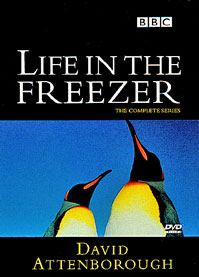
Life in the Freezer is a BBC nature documentary series written and presented by David Attenborough, first transmitted in the United Kingdom from 18 November 1993.

Virgin Media One, also called Virgin One, is an Irish free-to-air television channel owned by Virgin Media Ireland, operated through its subsidiary Virgin Media Television. The channel launched on 20 September 1998, as TV Three, becoming Ireland's fourth television channel and the first commercial channel. It was known as TV3 from 2006, and then as Virgin Media One from 30 August 2018. The channel broadcasts a mix of Irish programming and acquired programming from ITV and others.
UKTV Media Limited, trading as UKTV, is a British multi-channel broadcaster, which, since 2019, has been wholly owned by BBC Studios, a commercial subsidiary of the BBC. It was formed on 1 November 1992 through a joint venture between the BBC and Thames Television. It is one of the United Kingdom's largest television companies.
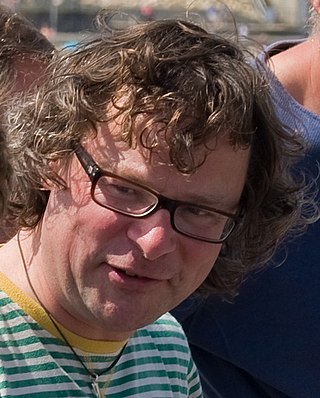
Hugh Christopher Edmund Fearnley-Whittingstall is an English celebrity chef, television personality, journalist, food writer, and campaigner on food and environmental issues.
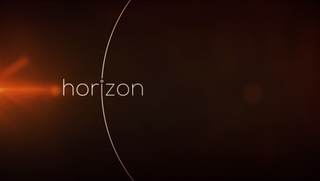
Horizon is an ongoing and long-running British documentary television series on BBC Two that covers science and philosophy.
The BBC Studios Natural History Unit (NHU) is a department of BBC Studios that produces television, radio and online content with a natural history or wildlife theme. It is best known for its highly regarded nature documentaries, including The Blue Planet and Planet Earth, and has a long association with David Attenborough's authored documentaries, starting with 1979's Life on Earth.
Together TV is a British free-to-air television channel owned by The Community Channel, a community benefit society. The channel targets a women's audience aged 40 to 60, with programming related to health and wellness, hobbies, and creativity.

Natural World is a strand of British wildlife documentary programmes broadcast on BBC Two and BBC Two HD and regarded by the BBC as its flagship natural history series. It is the longest-running documentary in its genre on British television, with nearly 500 episodes broadcast since its inception in 1983. Natural World programmes are typically one-off films that take an in-depth look at particular natural history events, stories or subjects from around the globe.
Clive Wearing is a British former musicologist, conductor, tenor and pianist who developed chronic anterograde and retrograde amnesia in 1985. Since then, he has lacked the ability to form new memories and cannot recall aspects of his memories, frequently believing that he has only recently awoken from a comatose state.
Millennium: Tribal Wisdom and the Modern World is a 1992 documentary television series of ten one-hour episodes celebrating the lifeways and worldviews of small scale non-technological societies as the last of them face their inevitable accommodation with the 'modern world'. The Western world's desire to remake other societies into its own image robs our modern world of the gifts of other cultures. By exploring the values and different worldviews that hold many tribal societies together, the Millennium series reflects on what the modern world can learn from tribal societies as we all face the challenges of the next millennium: harmony with the natural world and one another, humility and tolerance, and a sense of belonging.
Robert Beckford is a British academic theologian and currently Professor of Climate and Social Justice at the University of Winchester, and has associate roles as a Professor of Black Theology at The Queen's Foundation, and a Professor of Theology at Vu University, Amsterdam. His documentaries for both the BBC and Channel 4 have caused debate among the religious community, instigated policy change and won national and international awards.
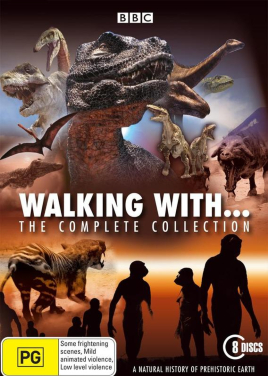
Walking with... is a palaeontology media franchise produced and broadcast by the BBC Studios Science Unit. The franchise began with the series Walking with Dinosaurs (1999), created by Tim Haines. By far the most watched science programme in British television during the 20th century, Walking with Dinosaurs spawned companion material and four sequel series: Walking with Beasts (2001), Walking with Cavemen (2003), Sea Monsters (2003) and Walking with Monsters (2005). Each series uses a combination of computer-generated imagery and animatronics, incorporated with live action footage shot at various locations, to portray prehistoric animals in the style of a traditional nature documentary.

A travel documentary is a documentary film, television program, or online series that describes travel in general or tourist attractions without recommending particular package deals or tour operators. A travelogue film is an early type of travel documentary, serving as an exploratory ethnographic film. Ethnographic films have been made for the spectators to see the other half to relate with the world in relative relations. These films are a spectacle to see beyond the cultural differences as explained by the Allison Griffith in her journal. Before the 1930s, it was difficult to see the importance of documentary films in Hollywood cinema but the 1930s brought about a change in the history of these films with the popularity of independent filmmakers.

Douglas Gayeton is an American multimedia artist, filmmaker, writer, and photographer with ties to farming in Sonoma County, California and photography in Pistoia, a medieval Tuscan town in North Central Italy.
The British Broadcasting Corporation (BBC) is a British public service broadcaster headquartered at Broadcasting House in London, England. Originally established in 1922 as the British Broadcasting Company, it evolved into its current state with its current name on New Year's Day 1927. The oldest and largest local and global broadcaster by stature and by number of employees, the BBC employs over 21,000 staff in total, of whom approximately 17,900 are in public-sector broadcasting.
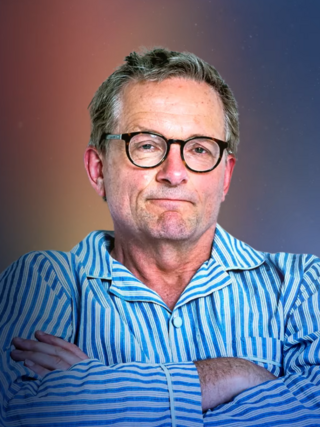
Michael Hugh Mosley was a British television and radio journalist, producer, presenter and writer who worked for the BBC from 1985 until his death. He presented television programmes on biology and medicine and regularly appeared on The One Show. Mosley was an advocate of intermittent fasting and low-carbohydrate diets who wrote books promoting the ketogenic diet. He died on the Greek island of Symi on 5 June 2024.
Folie à deux, also known as shared psychosis or shared delusional disorder (SDD), is a psychiatric syndrome in which symptoms of a delusional belief, are "transmitted" from one individual to another.
ClearStory Ltd is a British independent television production company. Founded in 2010 by the film-makers Russell Barnes and Molly Milton, it produces factual programming, often in the history and science genres, and has explored provocative social issues through documentary formats, sparking controversies.

Binge-watching is the practice of watching entertainment or informational content for a prolonged time span, usually a single television show.









